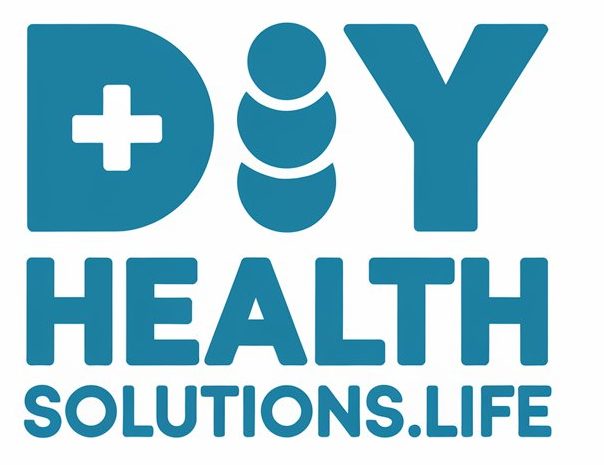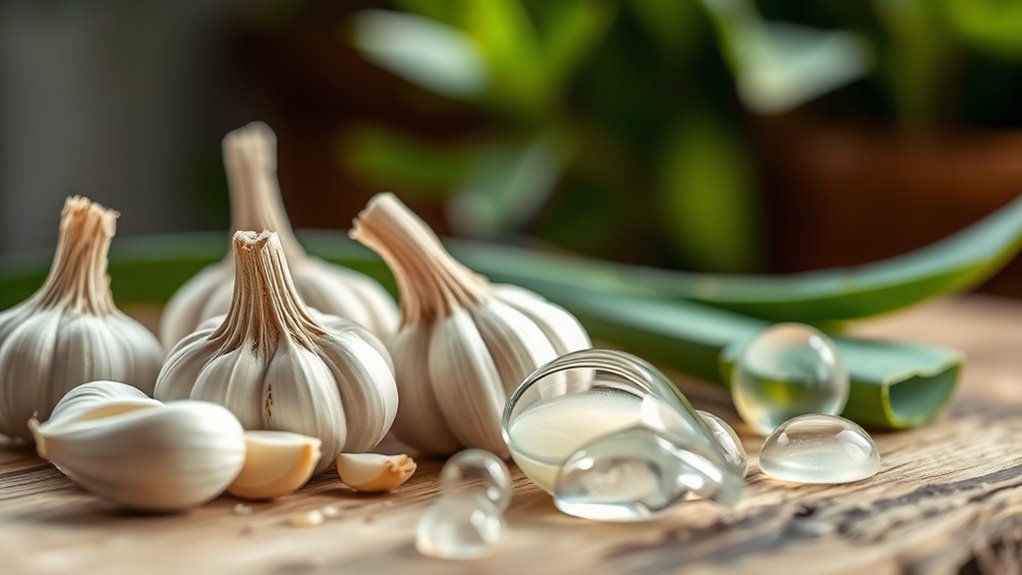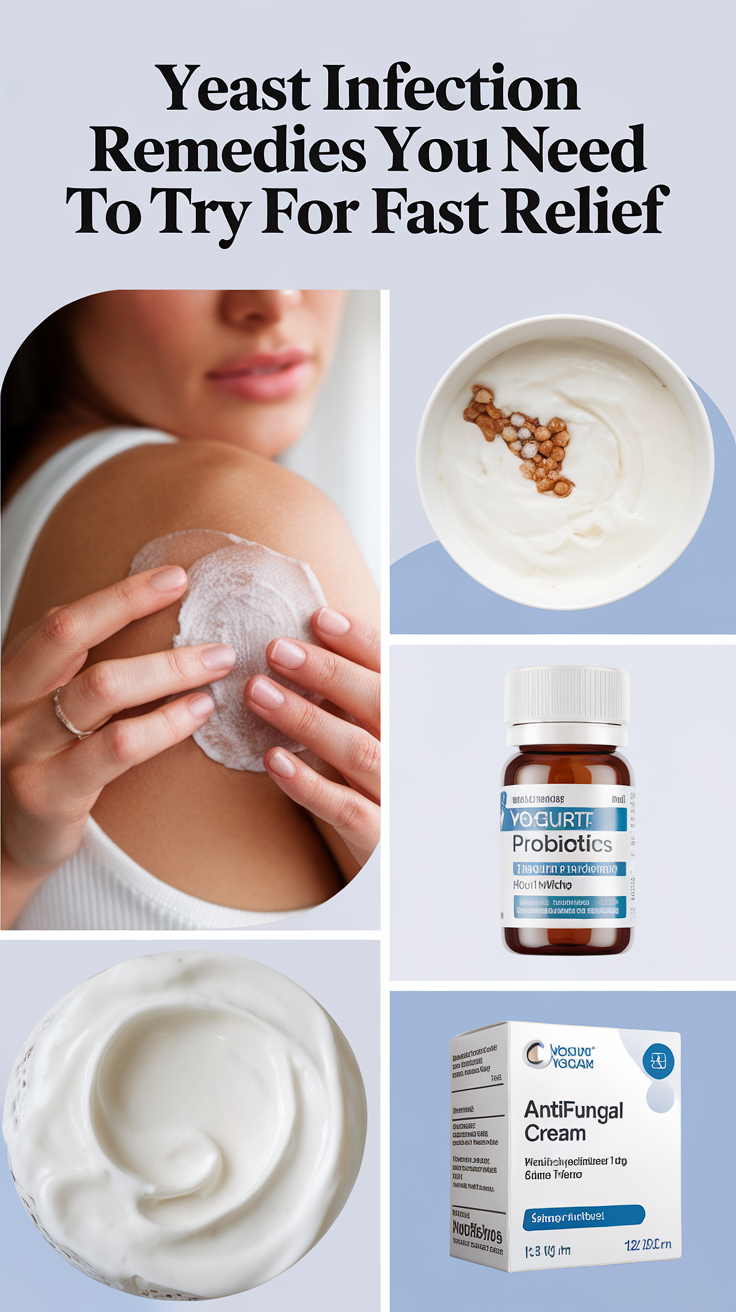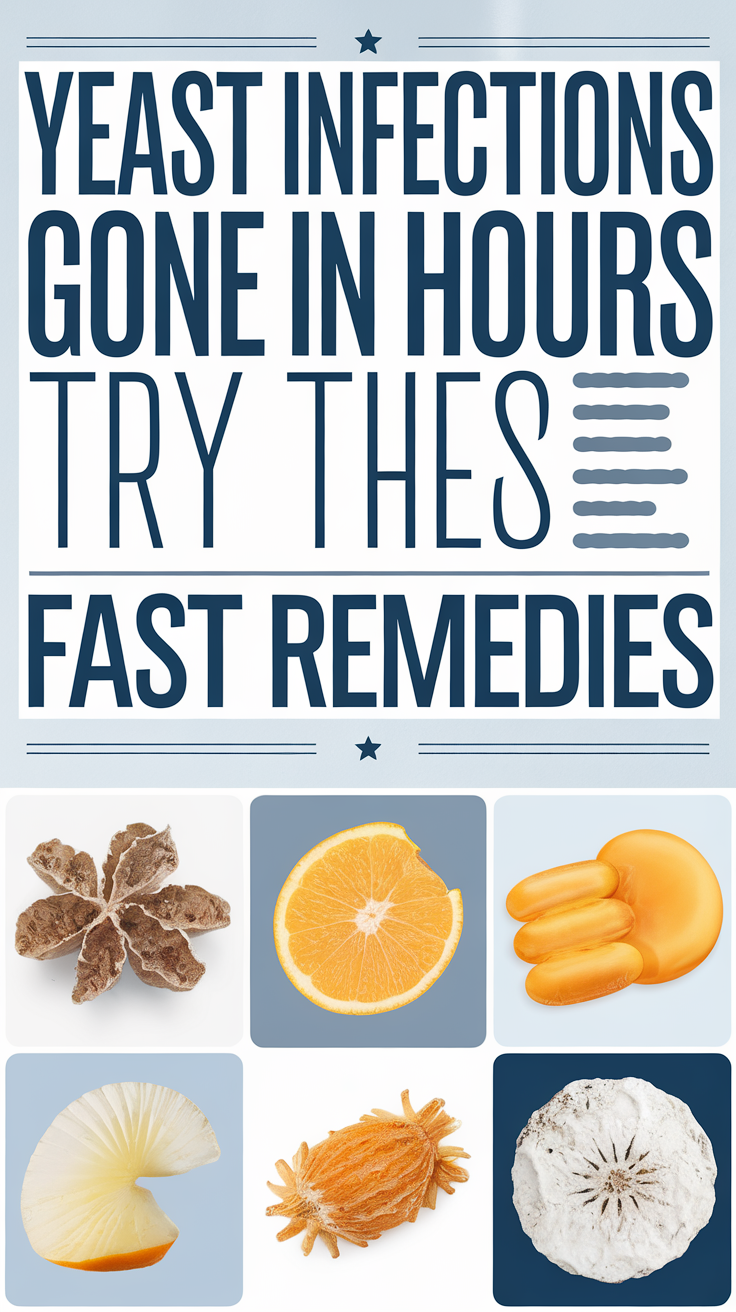The Shocking Truth About Natural Yeast Infection Cures
The shocking truth about natural yeast infection cures is that many popular remedies just don’t have the science to back them up, and they can even cause irritation. Sure, garlic and yogurt sound like a tasty fix, but they won’t always kick your infection to the curb. Instead of relying on these unproven methods, you’re better off using over-the-counter antifungal treatments. They actually work! Plus, keeping your area dry and eating more probiotics can help prevent future infections. So, if you want to find out how to stay healthy and avoid these pesky infections, just stick around!
Understanding Yeast Infections
Understanding yeast infections starts with recognizing what they’re and how they develop. Imagine tiny fungi, called yeast, that live in your body. Normally, they’re harmless, but sometimes they decide to throw a party, and that’s when you get an infection. Most commonly, this happens in warm, moist areas like your mouth or private parts.
So, what makes these pesky yeasts go wild? Well, several things can tip the balance. If you’re taking antibiotics, they might wipe out the good bacteria that usually keep yeast in check. Stress, pregnancy, or a weakened immune system can also give yeast a chance to overgrow. It’s a bit like letting your kids have too much candy; eventually, it leads to a sugar rush!
Symptoms can be annoying, too. You might experience itching, burning, or unusual discharge. It’s like your body’s way of saying, “Hey, something’s not right here!”
But don’t worry; understanding these infections is the first step in tackling them. By knowing what they’re and how they develop, you’re already on the path to finding relief and restoring balance.
Common Myths Debunked
When it comes to yeast infections, misinformation runs rampant—many people fall victim to common myths that can lead to unnecessary fear or confusion.
One big myth is that only women get yeast infections. Nope! Men can get them too, though it’s less common. So, if you’re a guy, don’t think you’re immune!
Another myth is that yeast infections are always caused by poor hygiene. While hygiene matters, many factors can contribute, like antibiotics or hormonal changes. You’re not dirty if you get one!
And don’t think that eating too much sugar will automatically give you a yeast infection. While sugar can play a role, it’s not a direct cause.
Also, many believe that over-the-counter treatments are ineffective. That’s simply not true! Many people find relief with these options.
Lastly, some think that yeast infections are contagious. You can relax; they’re not spread through casual contact.
Natural Remedies Explored
Let’s explore some popular home remedies that people swear by for yeast infections.
You might be surprised to learn how effective probiotics can be in balancing your body’s natural defenses.
Popular Home Remedies
If you’re looking for effective ways to tackle a yeast infection naturally, you might be surprised at the variety of home remedies available. From pantry staples to herbal wonders, there’s a lot to explore!
One popular remedy is yogurt. The live cultures in yogurt can help restore the balance of good bacteria in your body. Just apply some plain yogurt to the affected area, and let it do its magic.
Another option is coconut oil. This tasty oil has antifungal properties, which makes it a go-to for many. You can apply it directly to the area or use it in your cooking.
Garlic, known for its health benefits, is also a favorite. Eating garlic or using garlic oil can help fight yeast infections, but remember, it mightn’t be the best for your breath!
Apple cider vinegar is another household hero. Diluting it in water and using it as a rinse can help balance your body’s pH levels.
While these remedies sound promising, always listen to your body. If something doesn’t seem right, don’t hesitate to reach out to a healthcare professional.
Keep your spirits up, and remember, you’re not alone in this!
Effectiveness of Probiotics
Probiotics have gained significant attention as a natural remedy for yeast infections, building on the benefits of yogurt mentioned earlier. These tiny, friendly bacteria help balance the good and bad microbes in your body. When you take probiotics, you’re giving your body a boost, which can be especially helpful if you’re dealing with a yeast infection. It’s like sending in a little army to fight off the invaders!
Many people swear by probiotics in yogurt, capsules, or even fermented foods. They think these can help restore a healthy balance in your body. While some studies show promising results, it’s important to remember that not all probiotics are created equal. Some strains might work better than others, so it’s good to do a bit of research.
Now, don’t forget: probiotics aren’t a magic cure-all. They can be a supportive part of your strategy, but you should also consider other remedies and consult a healthcare professional.
Think of them as your trusty sidekick in the battle against yeast infections. So, why not give probiotics a try? You might just find they help you feel a little better!
Evidence-Based Treatment Options
When it comes to treating yeast infections, you’ve got some solid options backed by science.
From antifungal medications that zap the problem to dietary changes that can help keep things balanced, there’s a lot you can explore.
Let’s take a closer look at what works best, so you can kick that pesky infection to the curb!
Proven Medical Interventions
For those seeking effective relief from yeast infections, proven medical interventions offer reliable, evidence-based treatment options. When you’re dealing with that uncomfortable itching and burning, you want quick solutions that really work. Over-the-counter antifungal creams, like clotrimazole or miconazole, can be your best friends. They’re easy to use, and most people find relief within a few days.
If your infection is stubborn or keeps coming back, it’s time to chat with your doctor. They might prescribe stronger antifungal medications, such as fluconazole. This pill packs a punch and can knock out that pesky yeast in just one dose!
Don’t forget about the importance of following the treatment exactly as your healthcare provider suggests. Skipping doses or stopping too early can let the infection linger.
And remember, while natural remedies might sound appealing, they don’t always have the research to back them up. It’s always best to stick with what’s proven to work.
Dietary Modifications Impact
Dietary modifications can play a significant role in managing yeast infections. By making some simple changes to what you eat, you can help reduce the overgrowth of yeast in your body.
First, cut back on sugary foods and drinks. Yeast loves sugar, so less of it means less fuel for those pesky little critters! Instead, try munching on more vegetables and whole grains. They’re packed with nutrients and fiber, which can help keep your digestive system happy.
Incorporating probiotics into your diet can also be a game changer. Foods like yogurt and kefir are great sources of good bacteria that can help balance your body’s flora. You might even want to consider fermented foods like sauerkraut or kimchi. These can be fun and tasty additions to your meals!
Don’t forget to drink plenty of water, too. Staying hydrated is key for overall health and can help flush out toxins.
Antifungal Medications Effectiveness
Antifungal medications, both topical and oral, have proven effective in treating yeast infections and restoring balance to your body’s flora. If you’ve ever dealt with the discomfort of a yeast infection, you know how important it’s to find relief quickly.
These medications target the yeast overgrowth, helping you feel like yourself again.
Here are a few key points about antifungal treatments:
-
Fast Relief: Many antifungal creams and pills work quickly, often improving symptoms within a few days.
-
Accessibility: You can find over-the-counter options for topical treatments, making it easy to grab what you need.
-
Professional Guidance: For more severe cases, your doctor can prescribe stronger medications, ensuring you get the right care.
You don’t have to suffer in silence! By choosing the right antifungal medication, you can kick that pesky yeast infection to the curb.
Just remember, if your symptoms persist or keep coming back, it’s a good idea to chat with your healthcare provider. They can help you figure out the best plan for your situation.
Risks of Unproven Cures
When seeking relief from a yeast infection, it’s essential to be cautious about unproven cures. You might come across various home remedies, like garlic or yogurt, that promise to work wonders. But here’s the catch: not all of these solutions are safe or effective.
Using unproven cures can lead to more problems than you started with. For example, some natural treatments can irritate your skin or cause allergic reactions. Imagine adding discomfort to an already annoying situation!
Plus, without proper scientific backing, you might end up wasting time and money on something that doesn’t help your infection at all. In some cases, delaying proper treatment can let the infection worsen, leading to more serious health issues.
It’s always best to consult with a healthcare professional before trying any new remedy. They can guide you toward proven treatments that work.
Lifestyle Adjustments for Prevention
To keep yeast infections at bay, making some lifestyle adjustments can be incredibly effective. It’s like giving your body a little extra love! You don’t have to make huge changes—small tweaks can make a big difference.
Here are a few simple adjustments you can try:
-
Stay dry and comfy: Yeast loves warm, moist environments. Choose breathable fabrics like cotton and avoid tight clothing to keep things airy down there.
-
Mind your sugar intake: Yeast thrives on sugar, so cutting back on sweets and sugary drinks can help keep it in check. Think of it as a mini sugar detox!
-
Balance your diet: Eating a variety of foods, especially those rich in probiotics, like yogurt, can help maintain a healthy balance of bacteria in your system. It’s like giving your gut a pep talk!
Making these changes isn’t just good for avoiding yeast infections; it’s also great for your overall health.
When to Seek Medical Help
If you’re experiencing persistent symptoms of a yeast infection, it’s crucial to seek medical help. You know those annoying symptoms like itching, burning, or unusual discharge? If they’ve stuck around for more than a few days, don’t just wait it out. It might be more than a simple yeast infection, and you don’t want to play the waiting game with your health!
Also, if you notice any severe pain, swelling, or fever, that’s a sign to call your doctor ASAP. These could point to a more serious issue that needs attention. Remember, if you’re pregnant or have diabetes, it’s even more important to get checked out. Your body’s throwing you signals, and it’s wise to listen!
Sometimes, over-the-counter treatments just don’t do the trick. Your doctor can help you figure out the best plan for your situation. They might recommend a stronger medication or even check for other conditions.
Don’t feel embarrassed—yeast infections are super common! So, reach out and get the help you need. After all, you deserve to feel comfortable and healthy!




